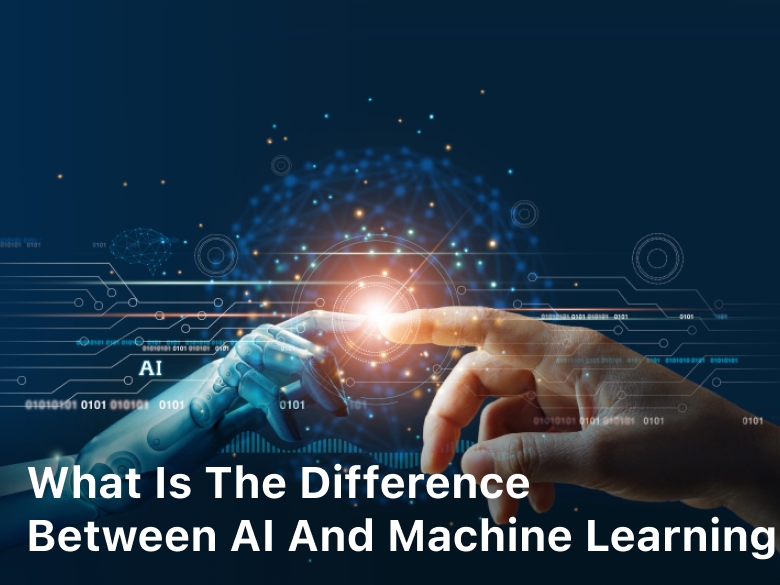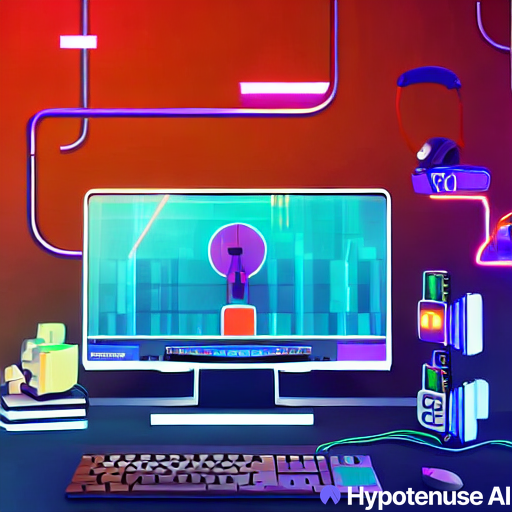What is The Difference Between AI and Machine Learning
What is The Difference Between AI and Machine Learning – Discover the nuances between AI and Machine Learning in this comprehensive article. Gain insights into their distinctions, applications, and the future they hold.
Artificial Intelligence (AI) and Machine Learning (ML) have become ubiquitous terms, often used interchangeably.
However, beneath the surface, they represent distinct paradigms that drive innovation across industries. In this article, we delve into the depths of AI and Machine Learning, uncovering their disparities, exploring real-world applications, and envisioning the trajectory of these technologies.
What is The Difference Between AI and Machine Learning
The fundamental difference between AI and Machine Learning lies in their scope and functionality. While AI is the overarching concept of simulating human intelligence in machines, Machine Learning is a subset of AI that focuses on enabling machines to learn from data.
Embracing AI: Artificial Intelligence Explored
AI encompasses the broad spectrum of imitating human intelligence in machines. It encompasses a wide array of technologies, including natural language processing, robotics, and expert systems.
AI systems aim to mimic human cognitive functions such as learning, reasoning, problem-solving, and decision-making.
Navigating ML: Machine Learning Unboxed
Machine Learning, on the other hand, is a subset of AI that enables computers to learn from data and improve over time without being explicitly programmed.
It involves algorithms that identify patterns in data, adapt, and make data-driven predictions or decisions. ML is the driving force behind recommendation systems, fraud detection, and image recognition.

AI vs. ML: Deciphering the Differences
While AI and Machine Learning share a common goal of enhancing machine capabilities, they diverge significantly in their approaches and applications.
Learning Mechanism
AI employs rule-based programming and expert systems to simulate human intelligence, often relying on predefined rules and knowledge bases.
In contrast, Machine Learning hinges on data-driven learning, allowing algorithms to adjust and improve based on patterns detected in data.
Human Intervention
AI systems typically require more human intervention and explicit programming to handle complex scenarios. On the other hand, Machine Learning systems are designed to adapt and improve autonomously, reducing the need for constant human oversight.
Scope of Applications
AI’s vast scope ranges from virtual assistants like Siri to autonomous vehicles, while Machine Learning fuels predictive analytics, medical diagnosis, and financial modeling.
Training and Learning
AI systems are “taught” through programming and rule-setting, whereas Machine Learning algorithms “learn” from data iteratively, refining their performance over time.
Real-World Applications
AI at Play
AI’s impact reverberates across various domains, shaping industries and augmenting human capabilities.
Healthcare Revolution
AI-powered diagnostic tools analyze medical images and patient data, enabling early disease detection and personalized treatment plans.
Autonomous Marvels
Self-driving cars utilize AI to perceive their environment, make real-time decisions, and navigate safely.
The Power of ML
Machine Learning is the driving force behind numerous innovations that streamline processes and amplify efficiency.
E-commerce Enhancement
Recommendation engines in e-commerce platforms employ ML to suggest products tailored to individual preferences, enhancing user experience.
Financial Precision
ML algorithms predict market trends, assess risks, and optimize investment portfolios, revolutionizing the financial sector.
Future Perspectives
As AI and Machine Learning continue to evolve, their convergence holds unprecedented potential.
- AI Evolves: Toward Artificial General Intelligence (AGI)
The pursuit of AGI, machines with human-like intelligence, remains a distant yet tantalizing goal. Researchers are working to imbue AI systems with common sense reasoning and versatile problem-solving abilities.
- ML Ascends: Reinforcement Learning and Beyond
Reinforcement Learning, a subset of ML, is poised to create machines that learn through trial and error. This opens doors to advanced robotics, autonomous agents, and optimized decision-making systems.
FAQs
Q: Are AI and Machine Learning the same thing?
A: No, AI is a broader concept that encompasses various technologies, while Machine Learning is a subset focused on enabling machines to learn from data.
Q: Can AI systems learn on their own?
A: AI systems often require explicit programming, while Machine Learning systems can learn autonomously from data.
Q: What are some real-world applications of AI?
A: AI is used in healthcare for diagnostics, autonomous vehicles, virtual assistants, and more.
Q: How does Machine Learning improve e-commerce?
A: Machine Learning powers recommendation systems that suggest products tailored to individual preferences, enhancing the shopping experience.
Q: What is the future of AI and Machine Learning?
A: AI aims for Artificial General Intelligence, while Machine Learning advances into reinforcement learning and autonomous systems.
Q: Is human intervention needed for Machine Learning?
A: While initial setup is required, Machine Learning systems improve autonomously over time, reducing the need for constant human intervention.
Conclusion
In the ever-evolving landscape of technology, the distinction between AI and Machine Learning holds profound significance.
While AI encapsulates the grand vision of emulating human intelligence, Machine Learning focuses on the incremental process of learning from data.
Their symbiotic relationship paves the way for a future where machines are not just tools, but intelligent collaborators that shape industries, enhance experiences, and expand the boundaries of human ingenuity.
Keep Reading :




